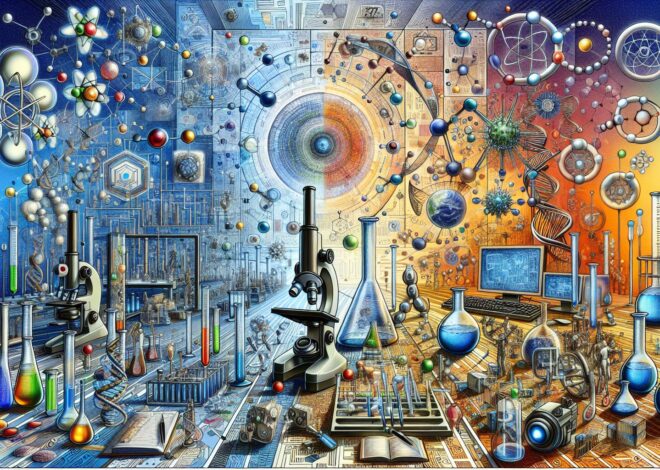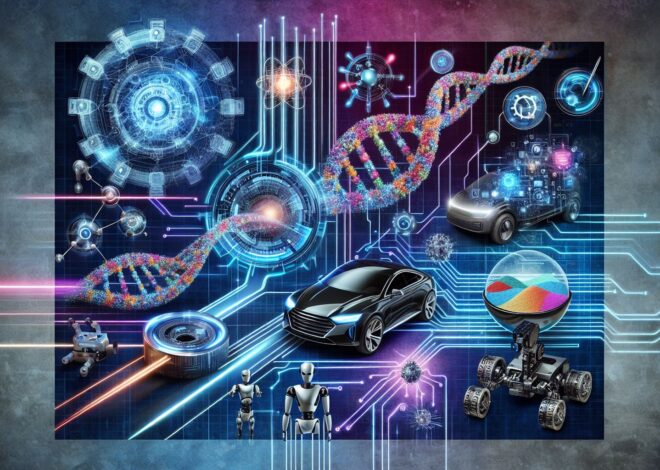
Embracing Disruption: The Synergy between Science and Technology
In today’s fast-paced and ever-evolving world, the fusion of science and technology is at the forefront of innovation and progress. From groundbreaking scientific discoveries to the rapid advancement of technological capabilities, the interplay between these two fields has the power to reshape industries and revolutionize the way we live and work.
One recent wave in the business sector that has caught the attention of experts and enthusiasts alike is the emergence of biotechnology. This interdisciplinary field, which combines biology, genetics, and technology, holds immense promise for a wide range of industries, including healthcare, agriculture, and energy. From gene editing and personalized medicine to sustainable farming practices and biofuels, the applications of biotechnology are vast and transformative.
Advancements in the field of artificial intelligence (AI) are also making waves in the business world. AI, the ability of machines to imitate human intelligence, is being integrated into various industries, allowing for unprecedented efficiency and productivity. From automating repetitive tasks to aiding in sophisticated data analysis, AI is enabling businesses to streamline operations and make data-driven decisions. Moreover, the integration of AI with other emerging technologies, such as Internet of Things (IoT), is creating a synergy that has the potential to revolutionize entire industries, including manufacturing, logistics, and healthcare.
The rise of decentralized finance, commonly known as DeFi, is another recent development that is reshaping the business landscape. DeFi utilizes blockchain technology to create decentralized financial systems, removing the need for intermediaries and traditional banking institutions. This innovation has far-reaching implications, from democratizing access to financial services to enabling peer-to-peer transactions without the need for traditional banking infrastructures. It has the potential to disrupt traditional financial systems by providing greater transparency, efficiency, and inclusivity.
While these advancements bring unprecedented opportunities, they also raise ethical and societal implications that need to be carefully addressed. The ethical implications of gene editing and AI, for instance, are subjects of ongoing debate. It is crucial for businesses, policymakers, and society as a whole to navigate these ethical considerations to ensure that the benefits of these technologies are harnessed responsibly and equitably.
As we look towards the future, the interplay between science and technology will undoubtedly continue to reshape the business landscape. Emerging fields, such as quantum computing and nanotechnology, hold the promise of even greater breakthroughs and disruptions. Quantum computing, with its ability to perform complex calculations exponentially faster than classical computers, has the potential to revolutionize fields like cryptography, optimization, and drug discovery. Similarly, nanotechnology, the manipulation of matter at the nanoscale, holds immense potential for advancements in medicine, electronics, and energy.
In conclusion, the fusion of science and technology is ushering in unprecedented waves of disruption in the business sector. From biotechnology to AI, these advancements have the power to reshape industries and unlock new possibilities. However, it is essential to address the ethical considerations and ensure responsible and equitable deployment of these technologies. As we embrace the future, the interplay between science and technology will continue to drive innovation and pave the way for a brighter and more interconnected world.



